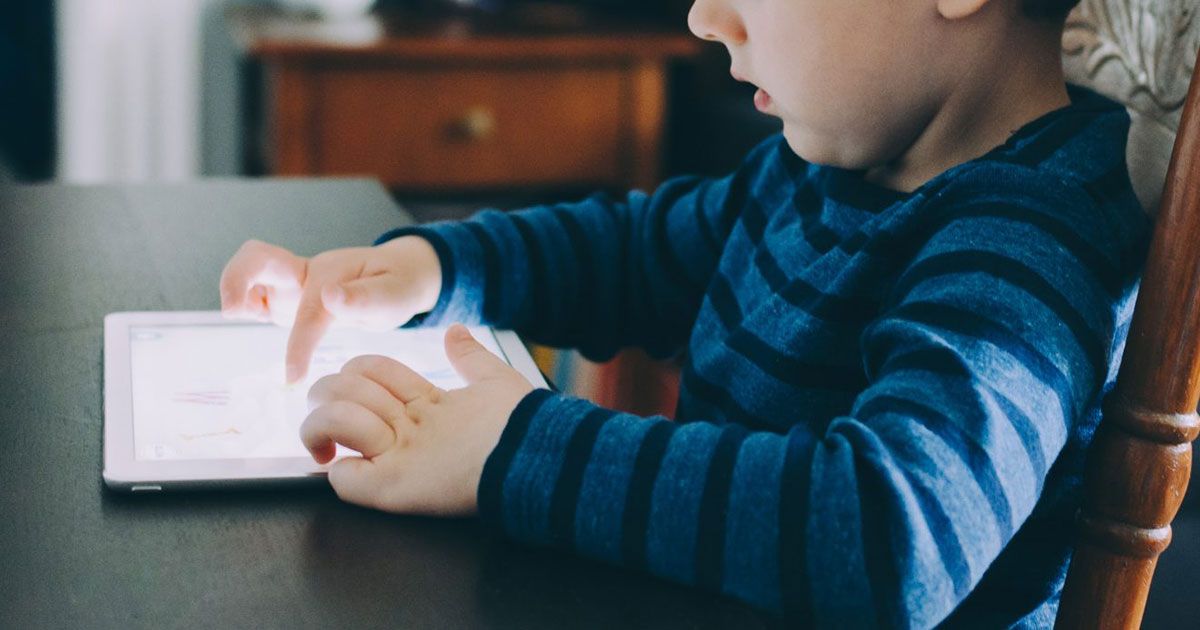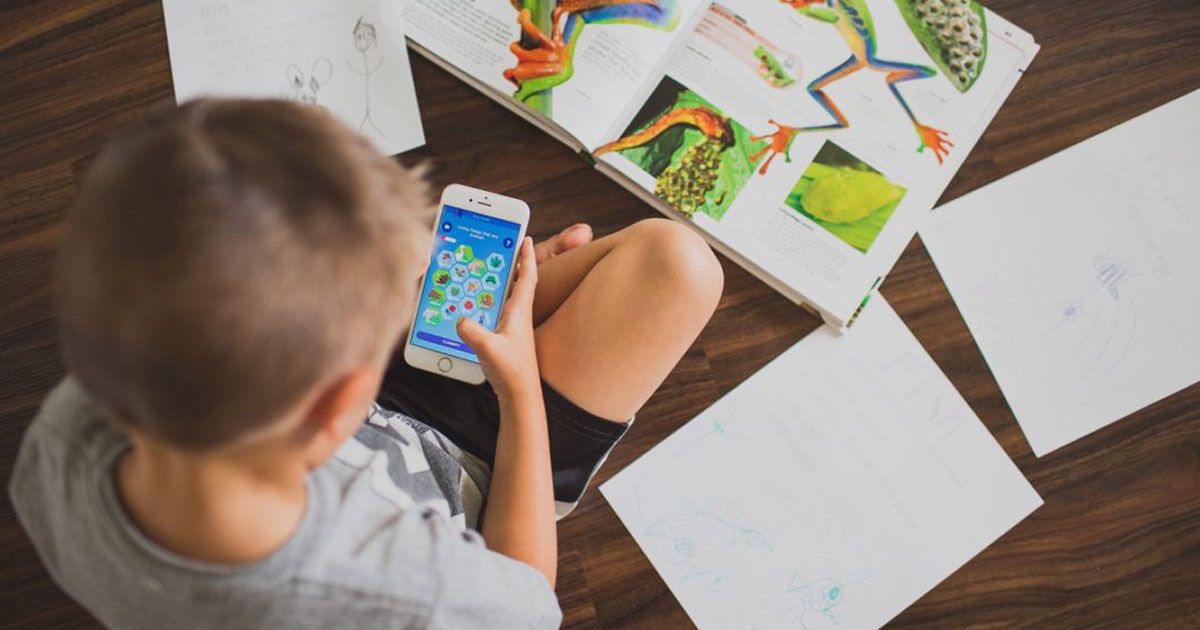Advertisement
Screen Addiction in Children: Who’s Responsible?
By YB Staff
5 min read
Advertisement - Continue reading below

There is no denying that all of us, be it youngsters or adults, have become increasingly dependent on smart devices. Cellphone addiction is a real and serious problem for a growing number of not only adults, but children as well. More parents now acknowledge the rapid growth of screen addiction in kids and believe that something needs to be done. Nowadays, many children love to spend hours on their phones rather than interact with people and engage in real-life tasks.
Who is responsible for screen addiction in kids?
Who is to blame, exactly? A large majority (77 percent) of U.S. consumers see screen addiction in kids as a growing issue. For them, it is the parents who should be blamed, not the manufacturers. A Morning Consult poll revealed that 60 percent of respondents blame the parents, 13 percent blame the media, and 10 percent blame the manufacturers for screen addiction in kids.
These screens, in addition to providing plenty of entertainment in one form or another, are capable of helping children with hand-eye coordination and developing motor skills. Therefore, it is understandable why parents, at times, use technology as a babysitter and become somewhat reliant on apps.

Screen addiction and the role of schools
Mary K. Alvord is a psychologist who studies resilience in both kids and adolescents. She believes that in order to fight screen addiction in kids, cutting down screen time is not the only effective solution, since a large number of schools now actively use screens for learning. Even though some evidence suggests that banning mobile phones in class is beneficial, numerous schools still depend on screens.
In 2015, the London School of Economics published a study which revealed that banning phones is equal to an extra hour a week; an additional five days worth of learning in the academic year. With the passage of time, more primary and secondary schools are introducing measures to keep students from using their mobile phones in the classroom, but so far no formal legislation has been passed at the government level.
RELATED: Five Questions to Consider Before Buying Tech for Kids
So, how to establish control? The key is to give children the right tools. These tools would help them in skillfully navigating social media and the internet so long-term damage could be avoided. This strategy is similar to how parents teach children to look both ways before crossing the street. Alvord says that parents need to create real-life activities as an incentive to go offline. Parents need to place boundaries. They should both learn and teach media literacy to children in order to understand the pitfalls of excessive screen time.
Tanya Goodin, the author of self-help book Off — a guide to disconnecting from the virtual world — says that no child under 13 years old should have a smartphone.

Tech companies need to share the blame, too
A group of Apple shareholders wrote an open letter to the tech giant earlier this year, urging the company to take a bigger role and help with research on screen addiction. The shareholders asked the company to assist parents so they can better manage their children’s screen usage. Admitting that you are part of a problem is not an easy task, but it is important.
There have been countless studies and surveys that link smartphone use with negative impacts on both the physical and mental health of children.
“Parents have both the right and the responsibility to monitor their children’s internet use,” said Dr. Michael Rich, founding director of the Center on Media and Child Health at Boston Children’s Hospital.
Rich has contributed significantly to the research that was used by Jana Partners, LLC and the California State Teachers’ Retirement System – both Apple shareholders – to strengthen their argument for the need for more effective parental monitoring measures.
Parents can use smart monitoring apps, like Xnspy and TrackMyFone, to keep an eye on kids’ online and offline activities. Such apps work effectively to curb screen addiction in kids. These apps remotely monitor the phone’s activities, including text messages, call logs, locations, web browsing history, and social media activity. This way, parents know what their children are up to.
“It is not only schools and parents who need to ensure that digital devices don’t take up most of our time,” said David Greenfield, founder of the Center for Internet and Technology Addiction. “I think smartphones should have a warning saying, ‘This technology can be addictive and distracting.’ Cellphone manufacturers and the technology companies that provide internet and data services do have a responsibility to educate the consumer. That hasn’t really happened yet, and these big companies will not do anything until they are forced to.”
Goodin shared a similar view that Apple and other mobile companies promote dependence on their products.

Jean Twenge, a professor of psychology at San Diego State University, told The Atlantic that teens in the U.S. who spend three hours a day or more in front of screens are 35 percent more likely to be at risk of committing suicide.
Adam Alter, a marketing professor at New York University’s Stern School of Business, said, “Corporations should be doing more to combat our growing dependency on electronic devices … Governments should intervene — not so much by regulating consumption, but by changing how companies and producers behave.”
As far as who is responsible for screen addiction in children, everyone shares the blame. At the same time, it is a shared responsibility to address the issue. Parents, schools, and companies need to work together to curb this alleged epidemic, which may be damaging young minds and their health. Technology and screens are only beneficial, and safe, if their usage is kept in check.
Do you think kids’ screen addiction is a growing concern? Who do you think has the largest responsibility to address it? SHARE your thoughts with other parents on Facebook.
Author Bio: Angelica Andrew is a mother of two kids, wife to an awesome and thoughtful husband, beach lover, book reader, working woman by day, and blogger by night. Blogging from sunny South Florida, she is passionate about travel, good food, entertainment, and fashion.
Advertisement - Continue reading below










